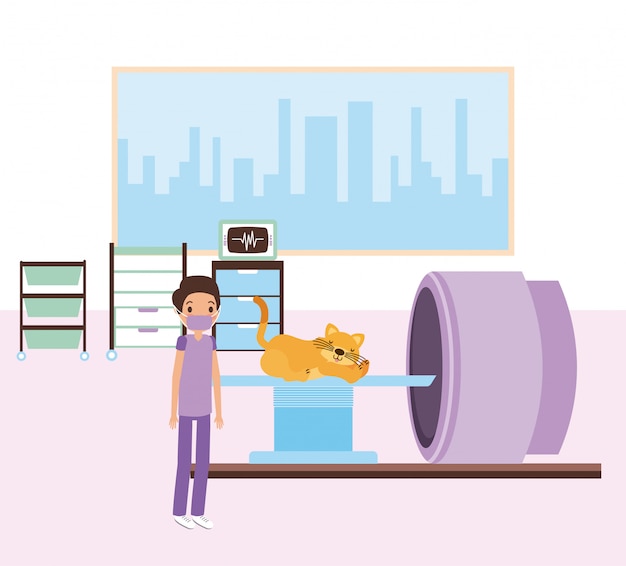Thyroid Ultrasounds for Pets | 4 Paws Imaging Center

Thyroid disorders are among the most common endocrine conditions affecting both cats and dogs, especially as they age. From subtle mood changes to unexplained weight shifts, these imbalances can have a wide-ranging impact on your pet’s health and well-being. At 4 Paws Imaging Center, we use thyroid ultrasound as a safe, detailed, and non-invasive diagnostic tool that helps veterinarians evaluate this small but mighty gland with remarkable clarity.
A thyroid ultrasound uses sound waves to generate real-time images of the thyroid gland. This imaging modality allows us to assess the size, shape, structure, and blood supply of the thyroid without radiation or sedation in most cases. It’s particularly helpful in diagnosing conditions such as hypothyroidism, common in dogs, and hyperthyroidism, most often seen in cats. The ability to visualize nodules, cysts, inflammation, or asymmetry allows your veterinarian to make informed decisions about treatment—whether that’s medication, dietary adjustments, or surgical intervention.
Unlike bloodwork, which provides only a functional snapshot, ultrasound lets us look at the gland’s anatomy. In many cases, both are needed for a complete diagnosis. For example, a cat with elevated thyroid hormones and an enlarged gland may benefit from a combination of medical therapy and ongoing ultrasound monitoring. In dogs, thyroid enlargement accompanied by low hormone levels might suggest a more complex issue, such as thyroiditis or even a rare tumor.
The procedure itself is simple and stress-free. Your pet lies comfortably on a padded surface while a small area on the neck is shaved to allow the ultrasound probe to make contact. One of our trained veterinary imaging specialists then performs the scan, and the results are reviewed by a board-certified radiologist or internist. We send the full report, complete with annotated images and interpretations, directly to your veterinarian so they can review the findings with you.
At 4 Paws Imaging Center, we believe that early detection is key. Many thyroid disorders can be managed very effectively when caught in time, reducing the risk of heart complications, behavioral changes, and metabolic distress. If your veterinarian has noted hormone irregularities or you’ve observed changes in your pet’s energy, appetite, or coat, a thyroid ultrasound could be the next best step.
We work by referral and in close coordination with your veterinary team, ensuring a seamless diagnostic process from start to finish. If you or your vet suspect a thyroid issue, schedule an appointment with us at (630) 746-1382 and let our imaging experts provide the clarity needed to move forward with care.
















